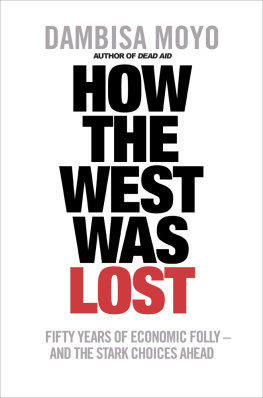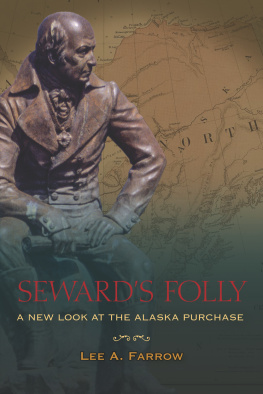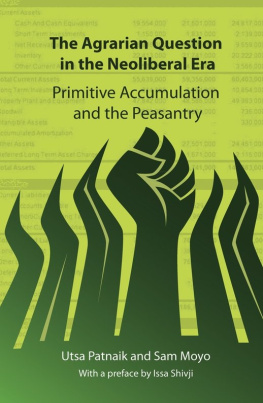Dambisa Moyo - How the West Was Lost: Fifty Years of Economic Folly - And the Stark Choices Ahead
Here you can read online Dambisa Moyo - How the West Was Lost: Fifty Years of Economic Folly - And the Stark Choices Ahead full text of the book (entire story) in english for free. Download pdf and epub, get meaning, cover and reviews about this ebook. year: 2011, publisher: Allen Lane, genre: Romance novel. Description of the work, (preface) as well as reviews are available. Best literature library LitArk.com created for fans of good reading and offers a wide selection of genres:
Romance novel
Science fiction
Adventure
Detective
Science
History
Home and family
Prose
Art
Politics
Computer
Non-fiction
Religion
Business
Children
Humor
Choose a favorite category and find really read worthwhile books. Enjoy immersion in the world of imagination, feel the emotions of the characters or learn something new for yourself, make an fascinating discovery.
- Book:How the West Was Lost: Fifty Years of Economic Folly - And the Stark Choices Ahead
- Author:
- Publisher:Allen Lane
- Genre:
- Year:2011
- Rating:5 / 5
- Favourites:Add to favourites
- Your mark:
- 100
- 1
- 2
- 3
- 4
- 5
How the West Was Lost: Fifty Years of Economic Folly - And the Stark Choices Ahead: summary, description and annotation
We offer to read an annotation, description, summary or preface (depends on what the author of the book "How the West Was Lost: Fifty Years of Economic Folly - And the Stark Choices Ahead" wrote himself). If you haven't found the necessary information about the book — write in the comments, we will try to find it.
Dambisa Moyo: author's other books
Who wrote How the West Was Lost: Fifty Years of Economic Folly - And the Stark Choices Ahead? Find out the surname, the name of the author of the book and a list of all author's works by series.
How the West Was Lost: Fifty Years of Economic Folly - And the Stark Choices Ahead — read online for free the complete book (whole text) full work
Below is the text of the book, divided by pages. System saving the place of the last page read, allows you to conveniently read the book "How the West Was Lost: Fifty Years of Economic Folly - And the Stark Choices Ahead" online for free, without having to search again every time where you left off. Put a bookmark, and you can go to the page where you finished reading at any time.
Font size:
Interval:
Bookmark:
Fifty Years of Economic Folly And the Stark Choices Ahead

ALLEN LANE
an imprint of
PENGUIN BOOKS
ALLEN LANE
Published by the Penguin Group
Penguin Books Ltd, 80 Strand, London WC2R 0RL , England
Penguin Group (USA) Inc., 375 Hudson Street, New York, New York 10014, USA
Penguin Group (Canada), 90 Eglinton Avenue East, Suite 700, Toronto, Ontario, Canada M4P 2Y3
(a division of Pearson Penguin Canada Inc.)
Penguin Ireland, 25 St Stephens Green, Dublin 2, Ireland (a division of Penguin Books Ltd)
Penguin Group (Australia), 250 Camberwell Road, Camberwell, Victoria 3124, Australia (a division of Pearson Australia Group Pty Ltd)
Penguin Books India Pvt Ltd, 11 Community Centre, Panchsheel Park, New Delhi 110 017, India
Penguin Group (NZ), 67 Apollo Drive, Rosedale, Auckland 0632, New Zealand
(a division of Pearson New Zealand Ltd)
Penguin Books (South Africa) (Pty) Ltd, 24 Sturdee Avenue, Rosebank, Johannesburg 2196, South Africa
Penguin Books Ltd, Registered Offices: 80 Strand, London WC2R 0RL , England
www.penguin.com
First published 2011
Copyright Dambisa Moyo, 2011
The moral right of the author has been asserted
All rights reserved.
Without limiting the rights under copyright reserved above, no part of this publication may be reproduced, stored in or introduced into a retrieval system, or transmitted, in any form or by any means (electronic, mechanical, photocopying, recording or otherwise) without the prior written permission of both the copyright owner and the above publisher of this book
ISBN : 978-0-14-192433-5
A senior business executive tells the story of a conference where the head of an established and leading Western telephone company boasted about all the things the company could do, and the innovations it had in the pipeline. He went on for quite a long time, as he demonstrated the companys range, and depth, and brilliance. His speech was met with enthusiastic applause. Then came the turn of the head of a similar Chinese company; undaunted, pointing to the Western executive, he said: We can do everything he can for 40 per cent less. He promptly sat down.
On 9 July 2008 the Chrysler Building, one of the best-loved icons of the New York skyline, was bought for US$800m by a foreign government. Thus one of Americas most emblematic buildings, symbolizing its power, its industry, passed into the hands of outsiders. It was not just any foreign government; not Britain, not Germany, not France; indeed not any economic power from the West. The buyer came from the new power bloc of rapidly emerging countries, which are today threatening the more than 500-year-long economic reign of the West. It was the investment arm of the Abu Dhabi government. The Chrysler acquisition was a part of the estimated US$1.8bn spent on commercial property in the US by Middle Eastern investors in just the first six months of 2008. It was not the first such purchase; nor will it be the last. Indeed, after the 2008 financial debacle, and the collapse in asset prices that it brought with it, such purchases are only likely to accelerate.
How the West was Lost is the story of how the worlds most economically powerful nations have seen their wealth and dominant political position decline to the point where, today, they are about to forfeit all they have strived for economic, military and political global supremacy. There are three main reasons why the West has seen its substantial advantage erode; an erosion whose pace is accelerating with every passing year.
First, through blinkered political and military choices, the West (principally the US) has successfully managed to alienate the very emerging countries with whom it now competes. Although these countries continue to trade with their Western counterparts, it is often done through gritted teeth and with an underlying sense of mutual mistrust. Naturally, the net effect has been to encourage polarization, rather than foment credible alliances. Were it not for a profit motive, the real risk is that come the day when the emerging nations dont have to trade with the West, they wont.
Second is what Thomas Friedman describes as the flatness of the world the lowering of transport, communication and manufacturing costs, which has made the transfer of technology easier. Indeed, the technological and economic advantages of the West have made this possible, and as a natural consequence encouraged the worldwide adoption of best-practice technology and governance standards. However, these advantages once held in Western monopoly have, over time, dissipated, and will certainly continue to do so.
However, it is the third cause which is the prime focus of this book.
How the West was Lost charts how, over the last fifty years, the most advanced and advantaged countries of the world have squandered their once impregnable position through a sustained catalogue of fundamentally flawed economic policies.
It is these decisions that, along the way, have resulted in an economic and geopolitical see-saw, which is now poised to tip in favour of the emerging world. Unless radical policy changes are made over the next decade the controlling hand of who owns what will quickly belong to China, India, Russia or the Middle East, and todays industrialized West is assured a savage economic decline.
In September 2008, the world witnessed an unprecedented assault on the financial structure that the West had taken for granted for the previous fifty years. Shockwave after shockwave battered the system. Every day seemed to bring a new calamity. In just three weeks, Lehman Brothers, a stalwart of the US banking system, collapsed; the prime US mortgage lenders, Fannie Mae and Freddie Mac, had to be nationalized; AIG, the worlds largest insurer, was brought to its knees and its very existence called into question (the company would receive a hefty US$85bn life-line from the American government to keep it afloat). And, in Britain, the bailout of banking giants Lloyds TSB and the Royal Bank of Scotland was running well above US$1.4tn (850bn) in 2009. Through it all, trillions were wiped off stock exchanges from New York, to London, to Reykjavk, and most places in between, placing millions of peoples pensions and savings in jeopardy.
But however extraordinary and cataclysmic these events were, How the West was Lost is not about the immediate whys and wherefores of this shattering and unexpected financial disaster. It is undeniable that the crash overwhelmed the world but just like a tsunami that appears seemingly out of nowhere and leaves death and destruction in its wake, the events of 2008 were the inevitable consequence of fault lines and shifts in economic tectonic plates that lay undetected under the seemingly calm financial waters upon which Western economies had sailed smoothly for the last half-century.
However, unlike the plates beneath the sea, had these economic faults been detected and dealt with, the financial crisis of 2008 might never have happened; certainly not to the degree and with the ferocity with which it did occur. The collapse was the culmination of a catalogue of policy errors and mistakes that had been gathering momentum over the last fifty years, erupting into the worst financial crisis since the Great Depression. Extraordinarily now, as if blind to the real causes of the turmoil of 2008, many governments have kept these flawed policies in place.
But there is a bigger story to be told. It is a mistake to view what happened as an isolated and relatively contained episode. In fact, what happened in 2008 marked yet another step in a fundamental transition from one economic power to another; from the West, to the Rising Rest.
Font size:
Interval:
Bookmark:
Similar books «How the West Was Lost: Fifty Years of Economic Folly - And the Stark Choices Ahead»
Look at similar books to How the West Was Lost: Fifty Years of Economic Folly - And the Stark Choices Ahead. We have selected literature similar in name and meaning in the hope of providing readers with more options to find new, interesting, not yet read works.
Discussion, reviews of the book How the West Was Lost: Fifty Years of Economic Folly - And the Stark Choices Ahead and just readers' own opinions. Leave your comments, write what you think about the work, its meaning or the main characters. Specify what exactly you liked and what you didn't like, and why you think so.






